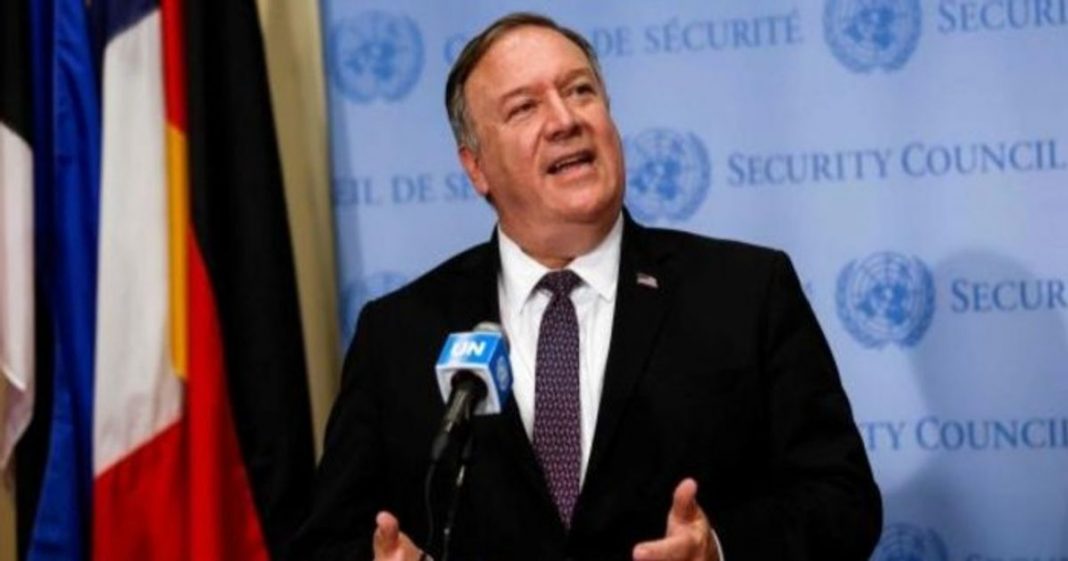On Tuesday, Secretary of State Mike Pompeo stated that the US has designated Pakistan and China in the list of countries that are of particular concern for violation of religious freedom, CNBC reported.
Apart from China and Pakistan, eight other countries, namely Eritrea, Iran, Myanmar, North Korea, Saudi Arabia, Tajikistan, and Turkmenistan have been included in the list. Pompeo said that these countries were tolerating and engaging in systematic, ongoing, egregious forms of religious violation against religious minorities.
Today the U.S. designates Burma, China, Eritrea, Iran, Nigeria, the DPRK, Pakistan, Saudi Arabia, Tajikistan, and Turkmenistan as countries of concern under the International Religious Freedom Act of 1998 for engaging systematic, ongoing, egregious religious freedom violations.
— Secretary Pompeo (@SecPompeo) December 7, 2020
In addition to this, he said that the US has placed Russia, Cuba, Nicaragua, and Comoros on the Special Watch List (SWL) for tolerating serious religious violations within their states.
“Religious freedom is an unalienable right, and the bedrock upon which free societies are built and flourish. Today, the United States, a nation founded by those fleeing religious persecution, as the recent Commission on Unalienable Rights report noted, once again took action to defend those who simply want to exercise this essential freedom,” the US Secretary of State remarked.
Extremist religious groups such as Boko Haram, al-Shabaab, al-Qaida, Hayat Tahrir al-Sham, the Houthis, ISIS, ISIS-Greater Sahara, ISIS-West Africa, Jamaat Nasr al-Islam wal Muslimin and the Taliban were also designated as ‘entities of particular concern’.
Pompeo further stated that the US had not renewed the ‘entities of particular concern’ positions for Al-Qaida and ISIS Khorasan due to the loss of territory formerly controlled by these groups.
“While these two groups no longer meet the statutory criteria for designation, we will not rest until we have fully eliminated the threat of religious freedom abuses by any violent extremist and terrorist groups,” he said.
Furthermore, Sudan and Uzbekistan have been removed from the Special Watch List (SWL) after significant measurements were taken by their respective governments. “Their courageous reforms of their laws and practices stand as models for other nations to follow,” he mentioned.
US will continue to fight for the suppressed
Pompeo further added “the US will continue to work tirelessly to end religiously motivated abuses and persecution around the world and to help ensure that each person, everywhere, at all times, has the right to live according to the dictates of conscience,”
The U.S. is unwavering in its commitment to religious freedom. No country or entity should be allowed to persecute people with impunity because of their beliefs. These annual designations show that when religious freedom is attacked, we will act.
— Secretary Pompeo (@SecPompeo) December 7, 2020
The US Commission on International Religious Freedom praised the State Secretary’s step towards adding the 10 nations in the list of ‘countries of particular concern’ (CPC) , while including Nigeria for the first time and the four countries in the Special Watch List in accordance with the International Freedom Act.
“We are gratified that the State Department has named 10 countries as CPCs. We particularly welcome Nigeria’s designation for the first time as a CPC for tolerating egregious violations of religious freedom, which USCIRF had been recommending since 2009. Nigeria is the first secular democracy that has been named a CPC, which demonstrates that we must be vigilant that all forms of governments respect religious freedom,” said USCIRF Chair Gayle Manchin.
Strikingly, the State Department did not accept the USCIRF recommendation that India, Russia, Syria, and Vietnam be also designated as CPCs.
Read more: China warns US of interference in domestic affairs may lead to further de-escalation in ties
Sanctions on Chinese officials
Just a day prior to this development, Mike Pompeo had issued a statement, according to which the US is placing visa restrictions on 12, high-ranking Chinese officials, over the HongKong crackdown. The officials were involved in Bejing’s disqualification of elected opposition legislators in Hong Kong, Reuters reported on Monday.
Today I announced visa restrictions on United Front Work Department officials who have engaged in malign activities to co-opt and coerce those who oppose Beijing’s policies. We call on the PRC to end its use of coercion to suppress freedom of expression.
— Secretary Pompeo (@SecPompeo) December 4, 2020
According to CNN, the visa restrictions will also be extended to the family members of the targeted high-ranking officials, and their visas will be reduced from ten years to one month and that too single entry.














